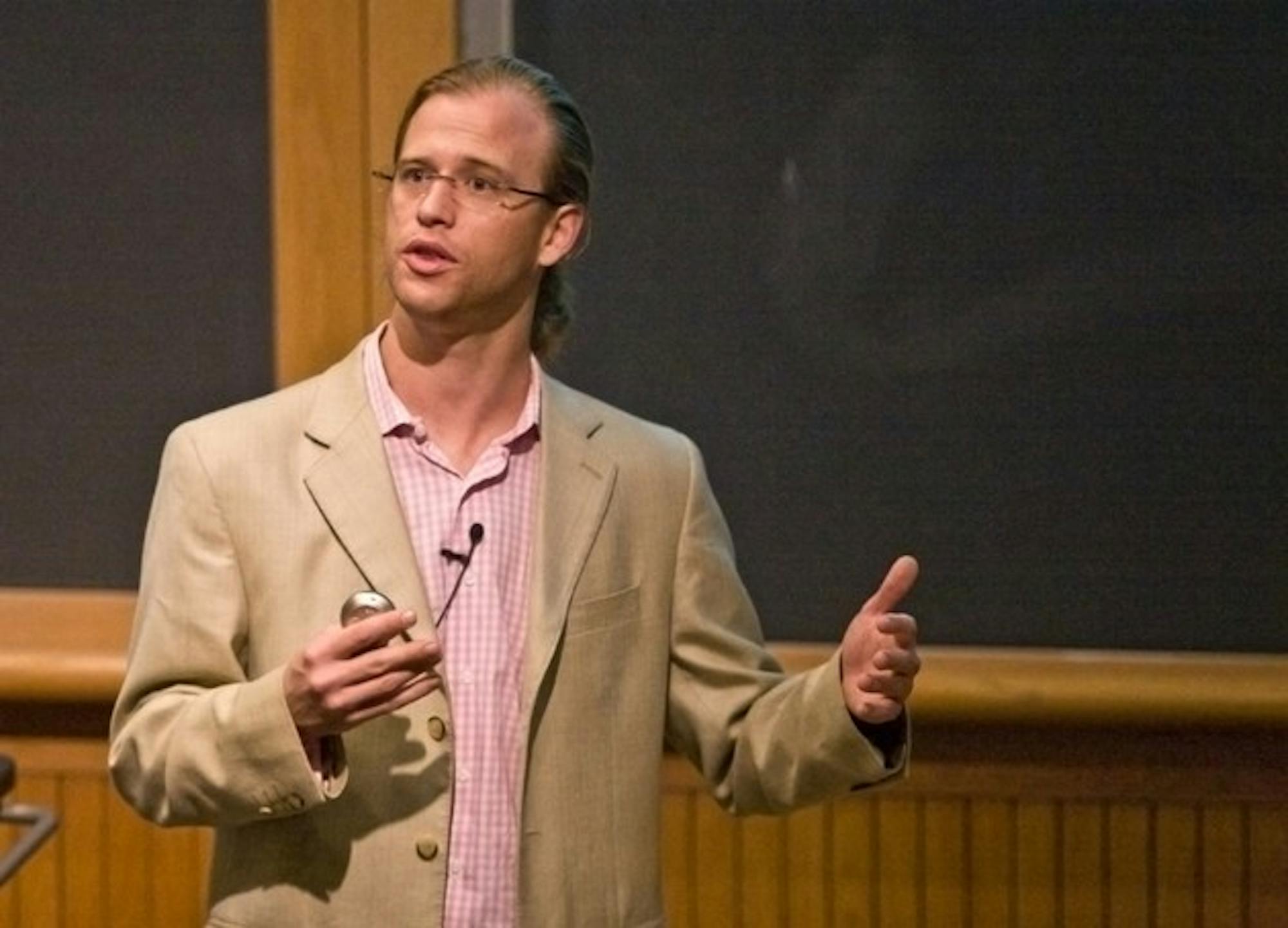Wolfers, who has a doctorate in economics, is an assistant professor of business and public policy at the Wharton School of Business and is visiting Dartmouth for two days as the first guest speaker in a new lecture series on applied statistics, hosted by the Tuck School of Business.
Citing extensive statistical evidence from a study he released in June 2007 with Joseph Price, an assistant professor at Brigham Young University, Wolfers suggested that same-race bias has affected, and continues to affect, the call-making of NBA referees enough to change the outcome of games.
Wolfers and Price's research found that basketball players can earn as much as four percent more fouls, and score up to two and a half percent fewer points when there are three referees of the opposite race instead of three referees of a player's own race.
"[The NBA] is the last place on earth I would have expected to find racial discrimination," Wolfers said, noting the progressive nature of the NBA and the high level of publicity and monitoring under which NBA referees do their job.
Wolfers said that he was surprised when the study attracted a massive amount of negative, and often personal, attention from the media and members of the public, but he said he should have seen it coming.
"Looking back, I realize that the study encompassed two of the biggest triggers for Americans today: race and sports," he said in an interview before the lecture.
But while Wolfers is sure that racial bias is present within the NBA refereeing system, he said he doesn't necessarily think that the NBA ought to make any policy changes.
"Our study found that there is unconscious bias on the part of NBA referees, but it didn't find that there is any more bias within the NBA than there is in other American institutions," he said.
Regardless, the implications of his and Price's findings are substantial.
"If you can find unconscious discrimination in the last place it would exist, then it must also exist in plenty of other places," Wolfers said.
"If even the referees are showing this kind of bias, then it would follow that the police are probably showing it, too."
He said that the NBA provided to be an ideal arena within which to examine racial bias because the referee crews receive their game-assignments randomly.
Additionally, comprehensive statistics on individual games are not only recorded, but also made available to the public.
"The idea is to use sports as a laboratory for exploring broader social themes," Wolfers told his audience during the lecture.
Wolfers was selected as a speaker by virtue of his ability to appeal to a wider audience, said government professor Michael Herron, who was responsible for organizing the lecture series.
"It's a sexy subject," Herron said. "You'll get to see statistics in action."




